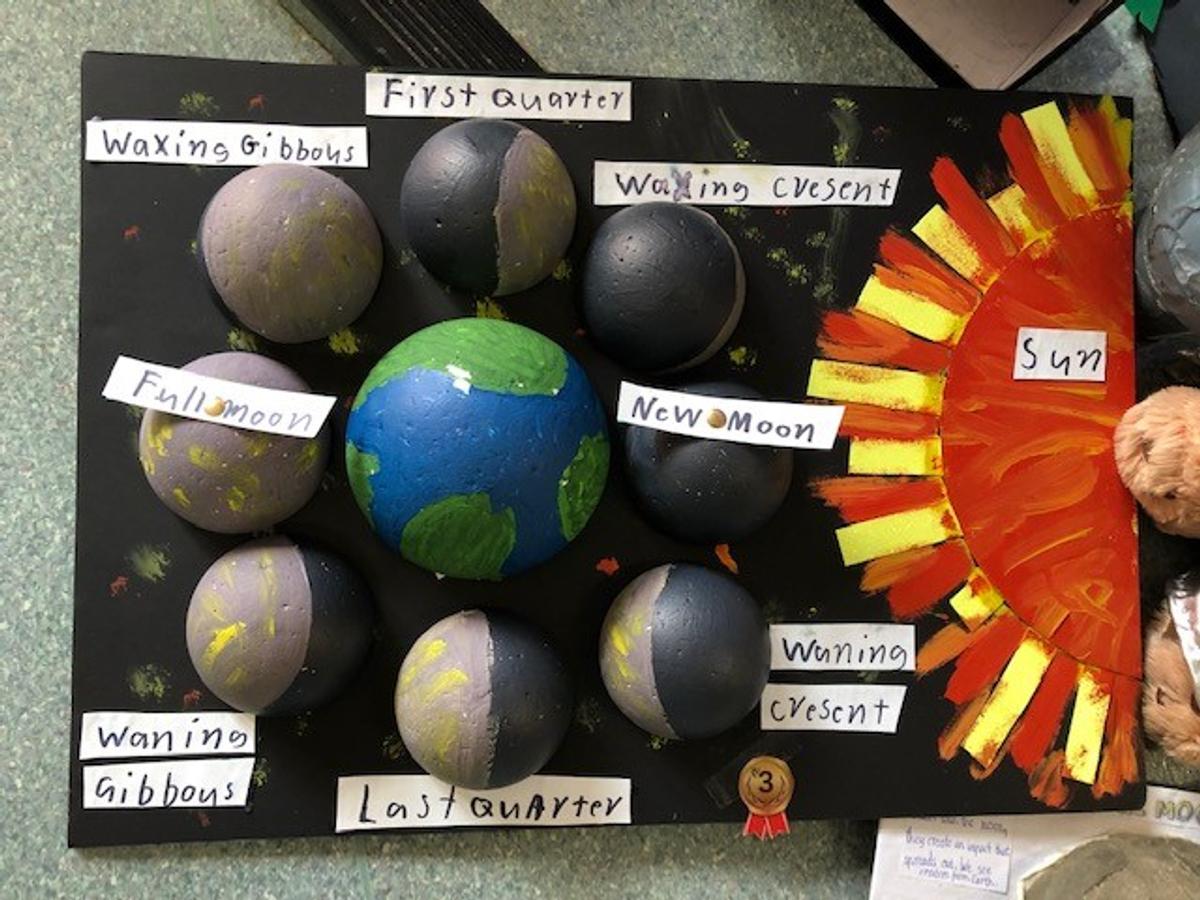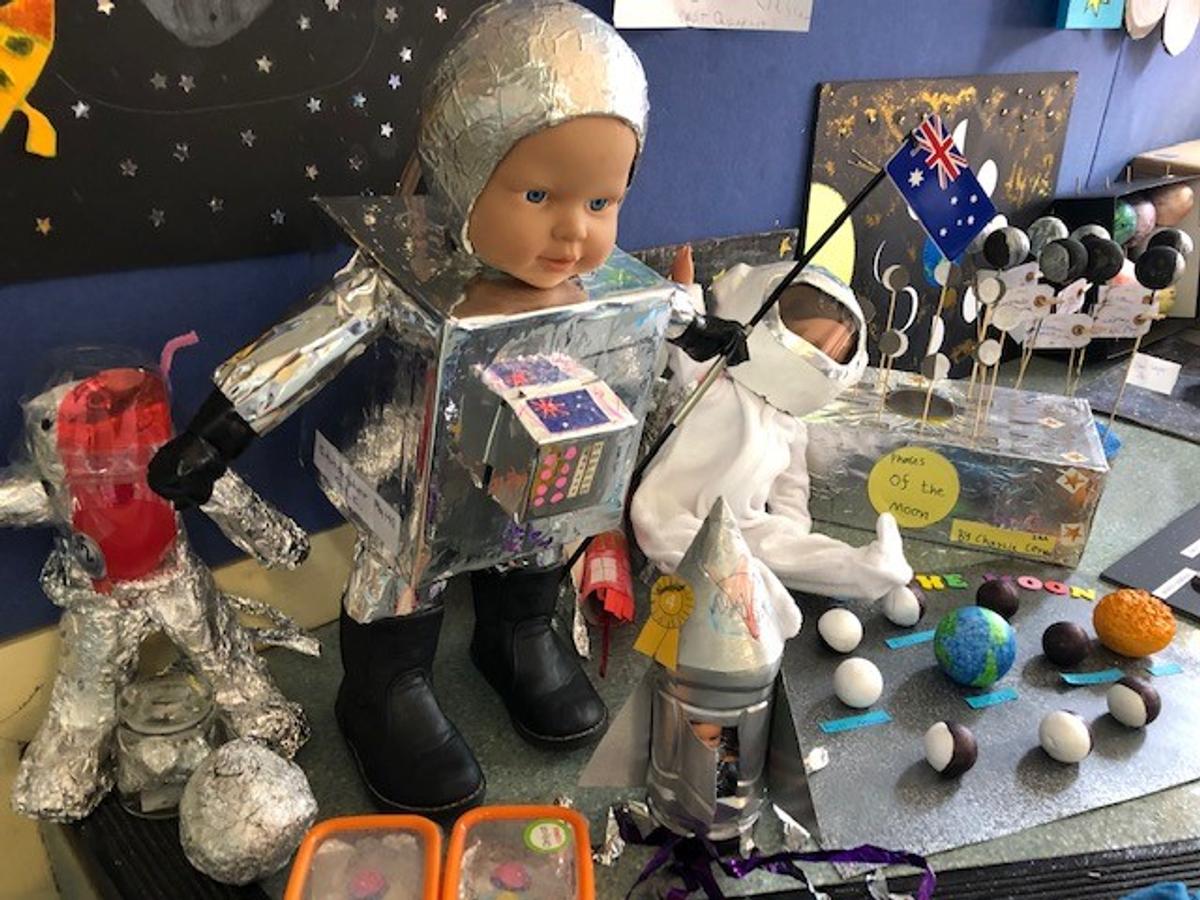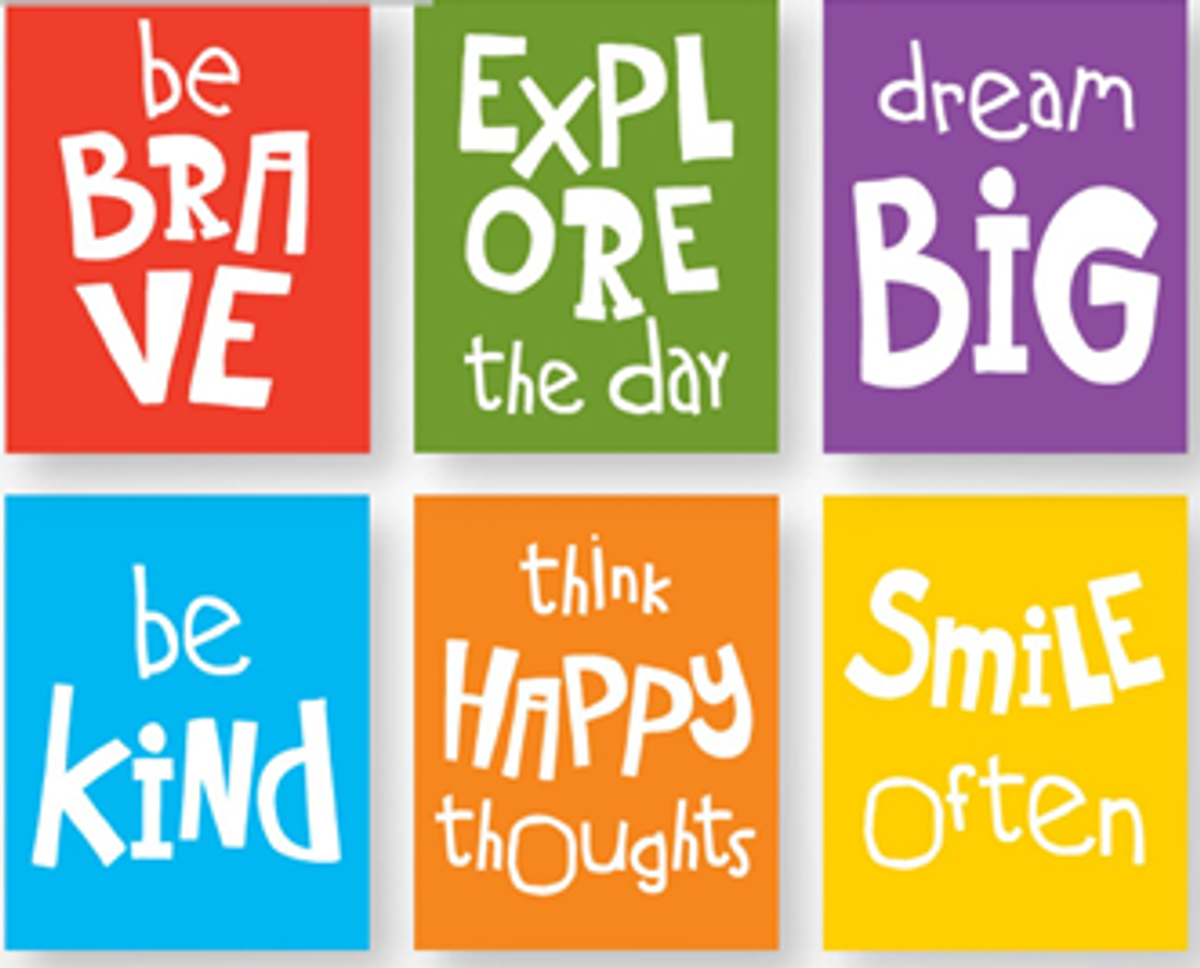Principal's Update
Angelika Ireland

Principal's Update
Angelika Ireland


What an exciting week students had during Science Week. Thank you to Mrs Symons, our Science Specialist, for organising so many engaging Science activities for our students and teachers.
The Science Week Competition challenged the students to design and construct one of the following:
Foundation - Can you make your own Astronaut?
Year 1/2 – Phases of the Moon
Year 3/4 – A Moon Model
Year 5/6 – Design and build a Moon Rover
Below are photos of some entries into the Competition:
This term all Foundation – Year 6 teams also planned an Earth and Space Science unit of inquiry for their students to celebrate 50 years of landing on the moon.




Thank you to the 33% of randomly chosen families who responded to the Parent Opinion Survey. Your response was really appreciated. It is, however, disappointing to see that 66% of families did not make the time to give us feedback. As a school, we value the partnership between home and school.
Below are some points about the benefit of parents in working in partnership with their child’s school:
What is a home / school partnership?
Family-school partnerships are collaborative relationships and activities involving school staff, parents and other family members of students at a school. Effective partnerships are based on mutual trust and respect, and shared responsibility for the education of the children and young people at the school.
How can schools and parents work in partnership?
For true partnership, parents and teachers must develop opportunities for two-way communication, through which learning is the key goal. Both must take responsibility to develop positive outcomes for children. Successful parent involvement means mutual participation by families and teachers.
Why are home-school links important?
Ongoing research shows that family engagement in schools improves student achievement, reduces absenteeism, and restores parents' confidence in their children's education. Students with involved parents or other caregivers earn higher grades and test scores, have better social skills, and show improved behavior.
Involving parents in their children's education helps to remove many misunderstandings and ambiguities about daily life in school. A meaningful relationship between home and school encourages parents as partners and provides extra helping hands.
Why should parents be involved in their child’s school?
Kids develop better social skills and show improved behavior when their parents are involved at school. ... Improved education - Research shows that parent involvement can help improve the quality of schools, raise teacher morale, and improve a school's reputation in the community.
( Reference – www.education.gov.au/family-school-partnerships )
Recent events and current statistics highlight that as a nation we have a serious problem when it comes to domestic violence. While there’s no easy solution, together, we can do our part to stop violence against women. If you’re a parent or guardian, you can play an important role. Most studies shows that a boy’s disrespect towards girls generally begins in childhood.
Disrespect shows in small behavioural ways that can often be ignored or go unnoticed. These behaviours include teasing, using put downs and through verbal bullying and harassment. We can break the cycle by teaching our children to be respectful and caring toward all genders from a young age.
Start the conversation about respect early
Start by responding to your child calmly when they are disrespectful to others. The following three-step communication approach can be used from early childhood through to teen years. Let’s put it into practice.
If a boy is making fun of his sister or a female friend:
Stop: Respond calmly rather than react asking him to stop the teasing. It’s handy to have a phrase you can rely on when under pressure. For instance, "Stop please. That’s a personal put down. We don’t use put downs in this family."
Empathise: Invite your son to see the behaviour through the eyes of his sister. "How do you think your sister/friend feels right now?"
Educate: Provide options such as ignoring his sister or friend if she’s annoying him or providing an appropriate social script he can use to communicate his thoughts such as, “I find it annoying when you don’t share the computer”.
The acronym SEE (stop, empathise, educate) will help you remember these steps.
It’s a marathon, not a sprint
When it comes to gaining academic knowledge and learning skills, parents know it takes years of consistent effort from childhood through to adolescence. In the same way, parents can take a long-term approach to teaching life skills such as respecting women, beginning right from toddler to teen.
Resources you can use
The Stop it at the Start campaign provides parents, family members and others with information and practical resources to self-reflect, and talk to boys and girls aged 10-17 about being respectful and caring. You can find videos, guides and other resources to help you have conversations with your children at https://www.respect.gov.au/resources/talking-about-respect/
There is so much we can do in families to develop healthy attitudes toward women. Through modelling and teaching we can change entrenched attitudes and behaviours that will put an end to the cycle of violence against women.
(Reference : parentingideas.com.au )
Do you have a child who will be a Foundation student in 2020? Have you enrolled him/ her yet? If not, please do so immediately by phoning the school office or dropping in to complete the enrolment form.
Food for Thought:


Regards
Angelika Ireland